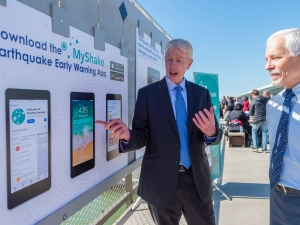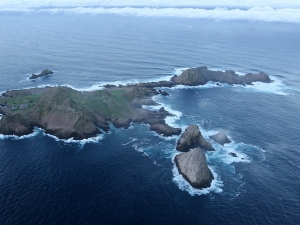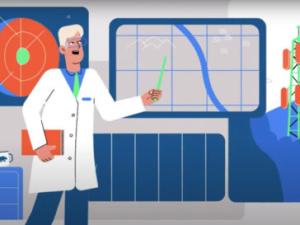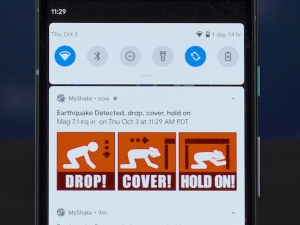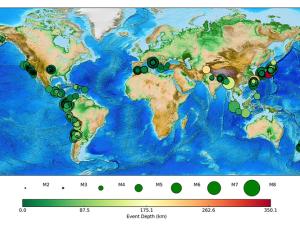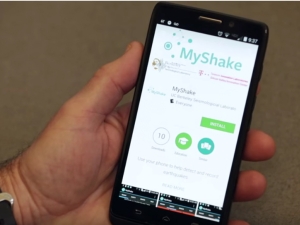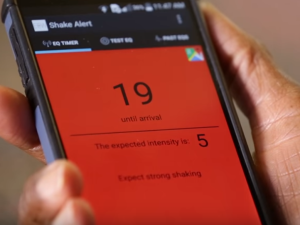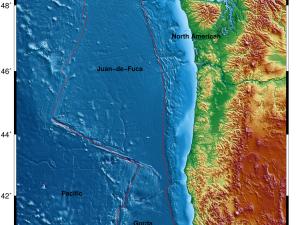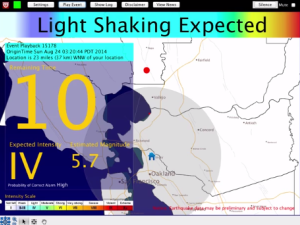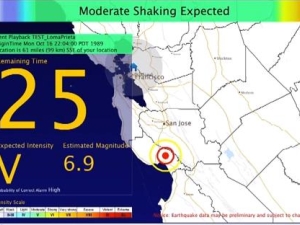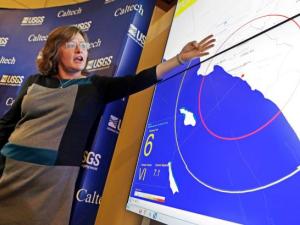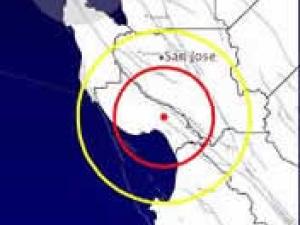

Research Bio
Richard Allen is the Director of the Berkeley Seismology Lab and the Class of 1954 Endowed Professor in the Department of Earth and Planetary Science at UC Berkeley. A leading voice in global seismic safety, he also serves as a member of the Earthquake Team at Google.
As a seismologist, his research interests span deep Earth structure, the earthquake source, and hazard reduction through societal engagement. His group uses seismic imaging techniques to constrain dynamic processes at tectonic boundaries, and his focus on real-time seismology has led to the development of earthquake early warning systems now used around the globe. He links scientific and technological advances to practical, societally-relevant hazard reduction, including through the development of the smartphone-based citizen-science oriented MyShake network.
His research has been featured in Science, Nature, Scientific American, the New York Times and dozens of other media outlets around the world. His original early warning algorithm was named in Discover Magazine’s top 100 science stories for 2003, and became the backbone for ShakeAlert, the U.S. earthquake early warning system. MyShake was an inspiration for Google's global Android Earthquake Alerts system, which was named one of the greatest innovations in 2020 by Popular Science. Most recently his work with the Android Earthquake Alerting System was recognized as a "Top 10 Breakthrough" of 2025 by PhysicsWorld.
He has a BA from the University of Cambridge, a PhD from Princeton University, and was a Postdoctoral Fellow at Caltech.
Research Expertise and Interest
Seismology, earthquakes, earthquake hazard mitigation, deep earth structure & dynamics, tomography, natural hazards
In the News
Berkeley Seismology Lab Turns Data Into Disaster Prevention
Berkeley To Lead “Innovation Hub” Helping Turn Basic Research Into Innovative Businesses
Seismic Station on Remote Farallon Islands Gets Critical Upgrade
With a nod to UC Berkeley, Google crowdsources earthquake data
California rolls out first statewide earthquake early warning system
Mexico City provides valuable lessons for U.S. earthquake early warning system
Quake-detection app captured nearly 400 temblors worldwide
State budgets $10 million for earthquake early warning
Gov. Jerry Brown has signed a 2016-17 state budget that provides $10 million to help launch a statewide earthquake early-warning system.
New app turns smartphones into worldwide seismic network
White House renews commitment to earthquake early warning system designed at UC Berkeley
The Obama administration and members of Congress today renewed their commitment to funding an earthquake early warning system along the Pacific Coast.
Scientists map source of Northwest’s next big quake
A large team of scientists has nearly completed the first map of the mantle under the tectonic plate that is colliding with the Pacific Northwest and putting Seattle, Portland and Vancouver at risk of the largest earthquakes and tsunamis in the world.
10-second alert: the view from the Berkeley Seismo Lab
Scientists at the Berkeley Seismological Laboratory were alerted 10 seconds before Sunday morning’s 6.0 magnitude temblor on the Napa Fault, courtesy of the ShakeAlert earthquake early-warning system.
U.S. should follow California lead on earthquake early warning, expert says
Although California Gov. Jerry Brown signed a bill last week to create a statewide earthquake early warning system, the United States is still behind the curve in embracing technology that has proven to save lives, lessen damage and speed recovery after a major quake.
Earthquake alert system may be coming
The San Francisco Chronicle recently reported on the work of Richard M. Allen, Director of the UC Berkeley Seismological Laboratory, for helping to develop an early warning system that flashes imminent danger when a damaging earthquake is about to strike.
Gordon and Betty Moore Foundation awards $6 million for earthquake early warning research
The Gordon and Betty Moore Foundation has awarded $6 million to three West Coast universities to create a prototype earthquake early warning system for the Pacific Coast of the United States.


